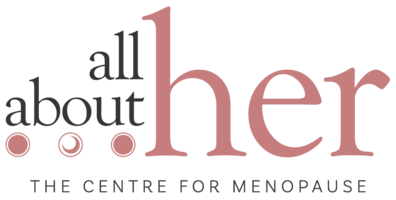
This week in WANT, we got stuck into something that every midlife woman I know is carrying... whether she talks about it or not.
That deep, chronic tiredness.
Not just “I didn’t sleep well” tired. Not “work’s been a lot” tired. I’m talking about the kind of tired that lives in your bones. That no holiday, green smoothie, or mindfulness app can really touch. The kind of tired that makes you question who you even are underneath all the coping.
And look... it’s not all hormonal. Yes, perimenopause messes with our sleep, our focus, our tolerance for bullshit. But this exhaustion? It’s not just physical.
It’s emotional. Mental. Existential.
And it’s coming from the invisible load we’ve been carrying for decades.
The Stuff No One Sees (But You Feel Every Day)
We started naming it. Not just the obvious stuff like schedules, bills, and school notes... but the internal running commentary most women have going 24/7. The tracking. The anticipating. The emotional temperature checking of every bloody room we walk into.
The “Who’s okay? What needs to be done? What’s about to fall over that I’ll have to catch?”
It’s relentless. And the wild part? No one sees it. Because we’ve been trained to make it invisible. Seamless. Graceful. Bonus points if you smile while doing it.
We carry other people’s lives inside our heads. Their preferences. Their moods. Their bloody dental appointments. And most of the time, they have no idea.
And honestly? It’s exhausting.
This Isn’t Just Your Personality… It’s Programming
One of the things we talked about — and I mean really talked about — is how so many of the things we think are “just how we are” are actually adaptations. Survival strategies. Socially rewarded coping mechanisms that have been with us for so long they feel like personality traits.
Being the capable one. The helper. The rock. The one who doesn’t drop the ball.
But that version of you? She was built. Shaped. Rewarded. And maybe… she’s tired.
We explored how perimenopause starts to strip some of that away. Whether you want it to or not. Suddenly, the things you used to tolerate feel intolerable. The energy you used to muster just isn’t there. You can’t be all things to all people anymore... and if we’re being honest, you don’t want to be.
That right there? That’s the crack. The turning point. The chance to ask... what’s mine to carry, and what have I been dragging around just because I thought I had to?
What’s in Your Hermès Birkin handbag? (Don’t have one. Me neither)
We spent time looking at this metaphorical handbag so many women are carrying around.
What’s in it?
Old roles. Inherited expectations. Invisible responsibilities. Emotional labour. The “good girl” script. The “strong woman” mask. The “I’ve got it” energy, even when you don’t.
Some of the stuff in there was handed to you when you were a kid. Some of it you picked up along the way without even realising. And some of it... some of it used to serve you. It made sense once. But now? Now it’s weighing you down.
And here’s the permission slip — you’re allowed to take things out.
You don’t need to carry the whole damn lot to be a good person. Or a good mum. Or a good partner. Or a good anything.
You can let something drop and still be worthy.
Honestly, I don’t even care what it is — the after-school schedule, the relationship maintenance you’re always initiating, the need to always respond with grace and empathy. Drop it. Even just for today.
The Power of Tiny Rebellions
We finished the session talking about the small ways women start to reclaim themselves.
The micro acts of rebellion.
Not buying the milk. Not replying to the group text. Saying no without cushioning it. Leaving someone else’s mess right where they left it. Eating lunch alone and not talking to anyone. Ordering takeaway without apologising.
Tiny. But potent.
Because every time you stop performing the “good woman”, every time you honour what you need instead of what’s expected, you get a little closer to yourself.
And that’s the thing no one tells you — reclaiming your life doesn’t have to look like a total reinvention. It can start with not doing. With letting go. With sitting down when you’d usually get up. With saying, “I don’t want to anymore.”
That counts. That matters. That shifts things.
One Final Thought...
If you’ve been feeling that tiredness — the kind that no amount of rest seems to fix — you’re not lazy, broken, or weak.
You’re carrying too much. And you’re starting to wake up to that fact.
That’s what we did this week in WANT.
We named it. We unpacked some of it. We got honest about how much of it was never ours to begin with.
And we started, in our own quiet and fierce way, putting some of it down.
Not all of it. Not yet. But enough to feel a bit lighter. A bit clearer. A bit more like ourselves.
And that? That’s where the shift begins.

Comments